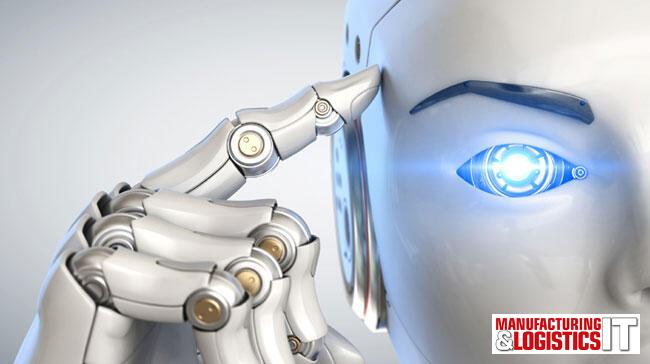The logistics industry is ever evolving, one of the major changes being the rise in artificial intelligence, which is inevitably having a major impact across all parts of the distribution chain. Logistic players, both large and small may be left wondering what these changes will mean for a human workforce in the near future.
Tony Hughes, CEO of Huthwaite International, discusses the emerging trends in AI, such as voice recognition, as well as the pros and cons of this developing technology for companies.

"Artificial Intelligence is already making huge impacts across all parts of the distribution chain, not least in voice recognition interfaces for the ordering phase. In the rest of the chain, highly or totally automated companies can already link to other businesses' automated networks, resulting in near-total automation. This will leave little opportunity for a human workforce. Automating so many people out of the actual workings of the logistics process means that the remaining staff will most likely be in human interface roles. This especially applies to the difficult-to-automate roles of sales and negotiation, affecting as they do, relationships at all levels including clients, sub-contractors, suppliers, collaborators and stakeholders. Automated systems have strong merits, but price isn't everything and sometimes people want things to be done by people, for no other reason that they prefer it.
Tony continues: "Additionally, not every company will be willing or able to change what they do, or how they work in the face of automated competitors. As AI increasingly penetrates every area of life, there will be a general refocusing of value onto human presence; trust, versatility, adaptability, customer support and skills, rather than on automated production and distribution. This will result in widespread business restructuring, greatly changing the nature of the manufacturing/distribution chain. At the same time, automation will see a refocusing of roles onto tasks still best achieved by humans. Human contact is often better when face-to-face, so this is likely to generate a reversal of globalisation. Many companies will use the more refined human edge as a key factor in justifying a higher price or a slower response. And this refined human edge has to be trained."
Tony identifies the following key opportunities for those selling and negotiating.
"AI presents opportunities for collaborative competition (where companies put aside self-interest and collaborate to tackle today's complex interconnected problems). This is particularly relevant among companies that are reliant on people, or unable or unwilling to fully embrace AI. While there is an obvious advantage in automation, not all companies will want to go down that route. If they don't, then they can form protectionist alliances. This will require a high level of selling capability to present a persuasive case to fellow participants, to industry and to clients as well as strong negotiation skills to establish a common mandate and secure a favourable outcome. Protectionist alliances tend to form when faced with a common threat; for example, licensed taxi drivers are in competition with one another but still grouped together to fight hard against Uber.
"On the flipside, AI equally offers advanced networks and tools to enable better collaboration between logistics companies. For example, small companies can group together into alliances to buy at better prices, distribute more efficiently, and establish awareness via community brands. Such alliances do not form automatically and are a commercial opportunity for those with the right sales and negotiation capabilities to make them work.
"In May 2017 a Tesla Model S was implicated in the world's first fatal self-driving car crash. Neither the driver nor the car's sensors detected a truck that had driven across their path. Tesla was cleared by US National Highway Traffic Safety Administration but it highlights the importance of planning for the worst-case scenario and ensuring liabilities are agreed when negotiating the supply or purchase of new technologies. It's a new landscape with a new set of considerations.
"Also, persuading clients to move from traditional to artificial intelligence technologies is becoming a pivotal role. Building memorable brands, writing new stories and understanding, crafting and communicating different messages for the myriad of influencers in the decision-making unit will all be essential. Core to this is trust. Addressing concerns and consequences and doing so early in the Buying Cycle to avoid escalation later on will be a crucial part of the sales and marketing process. The bigger the potential deal, the more the client will demand evidence of capability and commercial sustainability. With no case studies or existing clients to reference, those responsible for selling and marketing AI will need to be at the top of their game to anticipate and provide the levels of information and reassurance needed. Those who are will speed up the sales cycle, and with it, adoption rates and thereby secure a lion's share of the market for their companies.
Tony concludes: "Overall, AI clearly offers a major threat via automation but also provides opportunities and tools to those companies who want to stay with human-based systems, either purely protectionist, or by using them as a differentiator. One person's threat is another person's opportunity. Ensuring that the remaining humans in the system are well trained and know their complementary skills well will ensure that they can extract the best advantage of human and machine co-working."

Add a Comment
No messages on this article yet